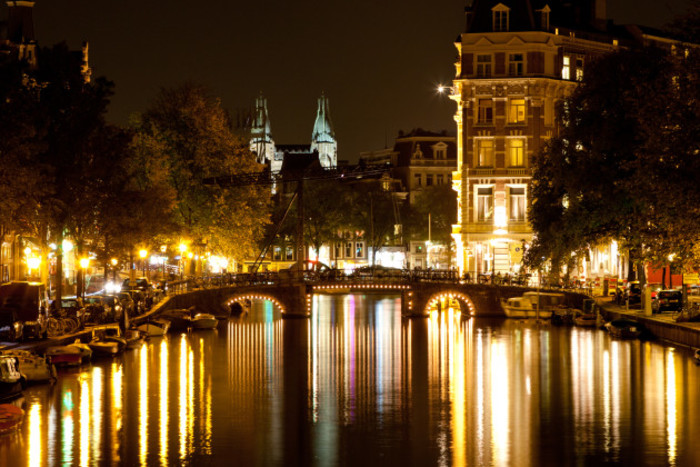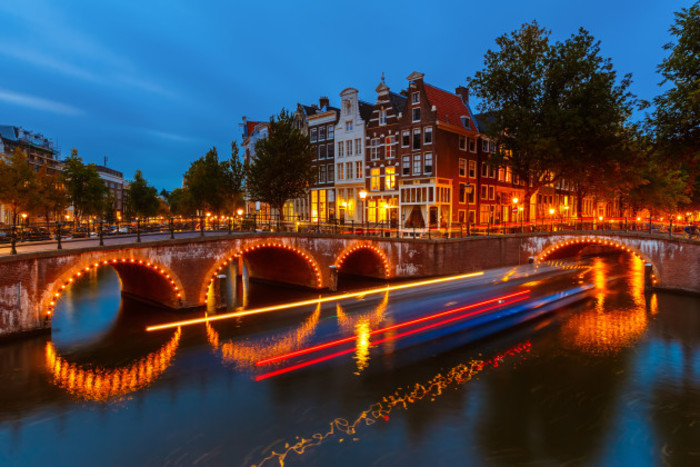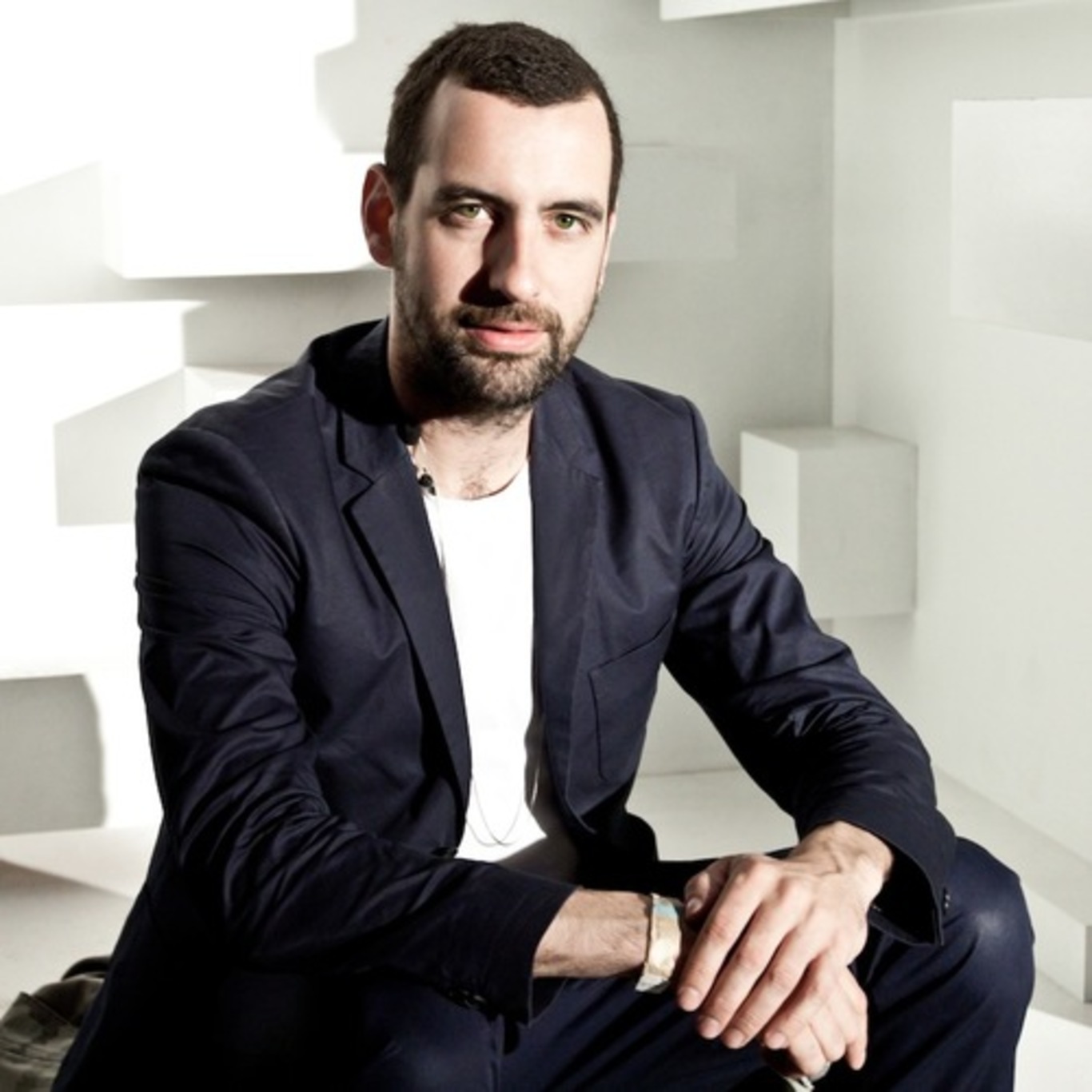What can Ireland's cities learn from the 'night mayor' of Amsterdam?
Mirik Milan dedicates his time to improving the after-dark economy of the Dutch capital.
IT CAN’T ALL be down to the eye-catching job title. Paris, Toulouse and a raft of cities across The Netherlands have adopted the idea of appointing a night mayor, following the success of Amsterdam’s ‘night-time czar’.
London’s even following suit: new mayor Sadiq Khan recently published a job ad seeking someone to boost nightlife culture and promote the clubbing economy.
And earlier this year, a panel debate took place in Dublin to discuss whether Ireland’s capital could benefit from the appointment of an official to look after the city, after dark.
So what does a night mayor actually do – and how would the residents of Ireland’s cities stand to benefit, if the scheme was introduced in Dublin, Cork and elsewhere?

Meet the Night Mayor
Mirik Milan, the current night mayor of Amsterdam – and the first person to hold that title anywhere, to our knowledge – will be speaking at a conference in the Docklands area of Dublin this week.
Highlighting the positives of nighttime culture is a key part of his role, he said in a phone interview.
“Changing the narrative of nightlife is really important: people can benefit from it and they don’t have to feel like they’re doing something wrong to be involved in this industry.”
Milan, a former club promoter, was appointed to the role in 2012, he explained. It had existed for around a decade before then, but was more of a nominal position - ”something you’d get as a nightlife person to raise your profile and to be cool”.
He created a small non-profit organisation partly funded by the city in 2014. With support from bars and clubs, he has been working since then to improve life after dark for businesses and their customers – acting as a bridge between the nightlife world and Amsterdam’s residents and officials.
But the focus isn’t on dealing with individual complaints from club-owners or residents, Milan explained.
“We focus on legislation – what’s going on in the city, how we can get all the stakeholders together.
“I would never just respond to a complaint from one person or respond to a request from a club – maybe if there were three or four nightclubs saying ‘we all have the same problem with this piece of legislation, can we speak to City Hall?’ – then we make sure that people come to the table. And hopefully we can change the legislation or make it better for all sides.”
There was enthusiasm for the project from the off, he said – which Milan puts down to the “typical pragmatic” approach to life in general in The Netherlands.

24-hour party people
Already, the scheme has brought about some significant changes – not least the introduction of 24-hour licences for a number of venues so clubbers can enjoy their night and make the journey home at a time of their own choosing.
As Milan explained: ”These 24-hour licences are not located in the city centre – they’re located on the outskirts of the city, which can be developed more.
“The venues can be open longer so more artists play there, and they are in the international spotlight. They can choose for themselves when to open and close – this also makes sure that people don’t all spill out into the streets at the same time.”
All of the above may conjure up images of illegal raves of the kind run in warehouses around suburban Dublin, but the approach, Milan explained, couldn’t be more different. Applicants for the 24-hour licences faced stringent stipulations.
“What was really radical about this is that the licences were not given out on the basis that there was four walls and a roof and a bouncer in front of the door – they were given out on the basis of content.
“It was focused on quality – we asked people to send in their pitches with a focus on what we thought was beneficial.”
Rather than the straightforward bar-nightclub approach, the 24-hour venues host a range of other events too – including theatre and movie nights.
“It’s more about the 24-hour economic system – how to use a building more efficiently rather than just having clubbing seven days in a row.”
Square hosts
Milan’s team, in cooperation with City Hall, has also spearheaded the introduction of ‘square hosts’ – a 20-strong crew of trained social workers who patrol designated areas of the city at weekends, acting as ‘soft enforcement’ personnel.
The hosts get to know their area and the regulars at the various clubs on their beat. Their responsibilities take in everything from giving out information on venues to tourists and other visitors, to stepping in to help curb potential outbreaks of violence.
Describing how it works, Milan said “the police are not so visible any more in the nightlife squares – because it often gives a grim and sometimes oppressive feel to the nightlife area”.
“So the police are now in the backstreet areas – the square hosts are on the squares.”
It works “like stewards at a football stadium,” he explained. “Because the steward is also your friend and they support your team as well.”
“The role of the square host is to de-escalate the situation if they see a problem – but also to give information about what’s going on in each nightclub and which bars play which kind of music.
“The square hosts know which people are the trouble-makers – and they’re there each weekend, so the trouble-makers know they’re being watched as well because there’s, like, 20 square hosts every Friday and Saturday night, so there’s 20 extra sets of eyes on the streets.
“If there’s a big problem, of course, they will inform the police and the police will go straight to it.”
‘Not a hedonistic Valhalla’
The myriad responsibilities of the role Milan has carved out for himself take in everything from acting as a spokesperson in the media for his city’s nightlife culture, to heading up awareness campaigns to clarify drug use policies.
On the latter: ”Some people think that The Netherlands are some kind of hedonistic Valhalla where you can do anything you like – that’s not true. You get caught with an illegal substance, you will go home with a criminal record.
“It’s the worst way to close off your holiday. Our focus is always on harm reduction and giving out the information people will actually use.”
Last orders
Asked about the situation in Irish towns and cities at weekends, where pubs close around midnight and clubs shut their doors – often all at once – just a few hours later, he says the approach frequently leads to trouble.
“I think it means between 12 and 2, it would be really busy on the street? A lot of problems happen when different groups of people meet each other on the street late at night – so it’s much better to divide these people more over the night.”
On a more general point, when it comes to changing licensing or related laws “legislators always think that their piece of legislation is going to create behavioural change – but it’s not”.
“Behavioural change comes from subcultures. They will influence mainstream culture so you have to invest in your subcultures and try to get people on board, because legislation has never done that.”
Mirik Milan will be speaking at the Irish Property Developers Conference 2016 at the Marker Hotel in Dublin tomorrow.
Written by Daragh Brophy and posted on TheJournal.ie








